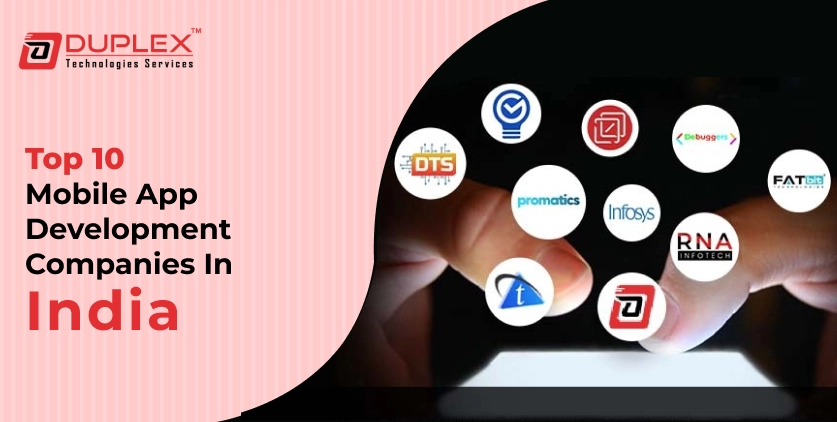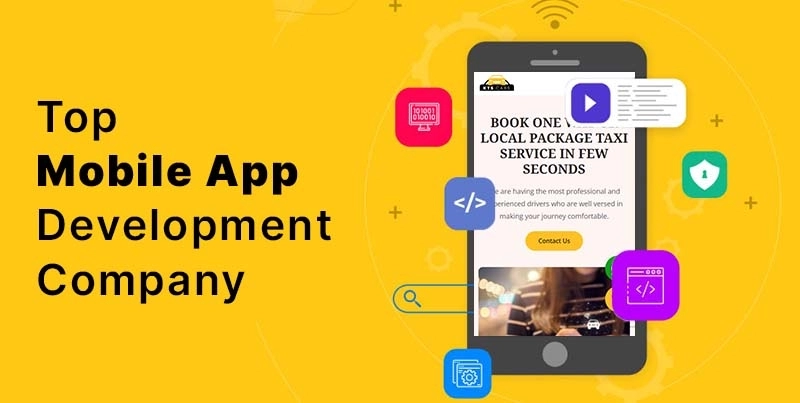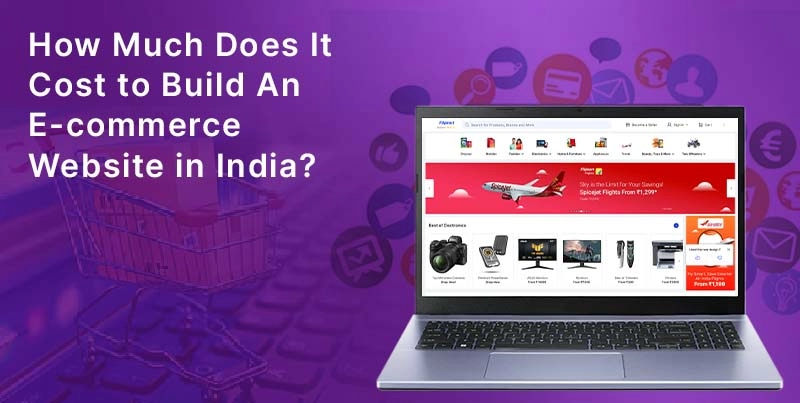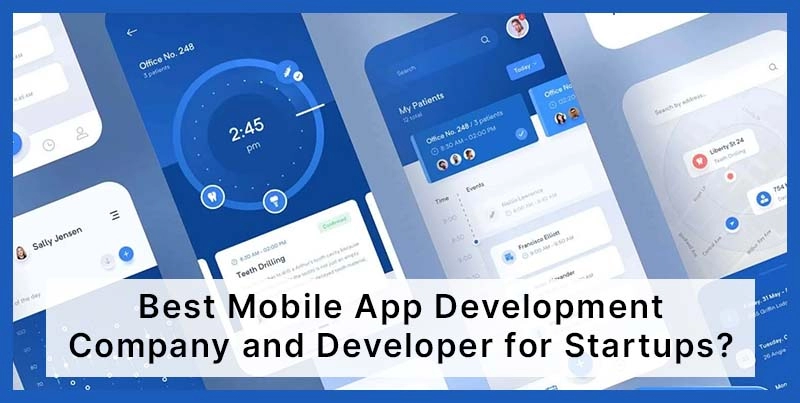WordPress vs. Other CMS Platforms | A detailed discussion on the best CMS platform
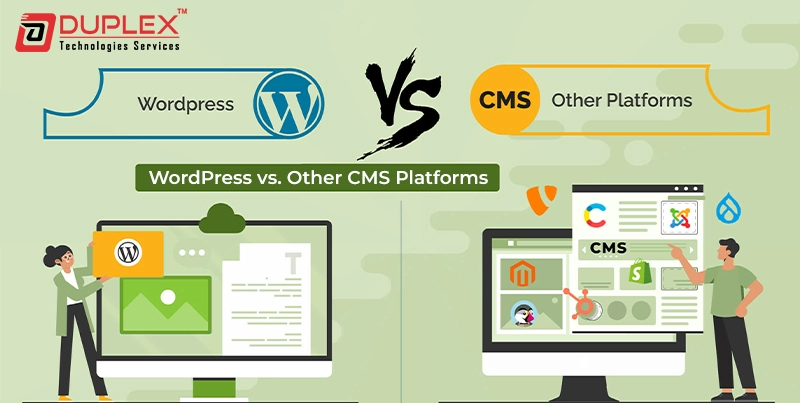
Posted By : Deepank Joshi, Posted Date : Sep 07, 2024
WordPress vs. other CMS platforms: A detailed comparison
Of course, in this world of rapid web development, choosing a Content Management System may just be the difference between success and total failure. When thinking about Content Management Systems, WordPress would certainly always be within the top three, given the commanding market share that it enjoys. But is it always so?
In this detailed blog, we have attempted to draw a comparison for WordPress vs other CMS platforms, considering all the major angles. Make sure you go through the whole blog so that you can efficiently compare WordPress platforms to other CMS platforms.
We have tried to take a deeper look into the strengths and weaknesses of WordPress against other popular WordPress alternatives to help users make an informed decision for their next web project. But before getting into the intricate details, let’s try to quickly take a look at what CMS platforms and WordPress are.
Table of Contents
- What are CMS platforms?
- What is the WordPress platform?
- Key features of WordPress vs. other CMS platforms
- Ease of use and learning curve; how does WordPress succeed?
- Customization and Flexibility: Comparing WordPress's Ecosystem
- Performance and Scalability: WordPress vs. Enterprise-Level CMS
- Cost Considerations: Comparing WordPress and its Alternatives in the Long Run
- Get in touch with Duplex Technologies to learn more about WordPress and its Alternatives
What are CMS platforms?
The CMSs are the following programs, which are intended to facilitate the work of creation, management, and updating of digital content on websites. These best WordPress alternatives offer an intuitive user interface whereby individuals and organizations can publish, edit, and organize a wide range of content formats with no special technical skills or knowledge of programming languages. Any CMS would include content creation tools, database management, user role assignment, and various templates. These are what allow users to manage the creation of content within their website, control workflows, and also maintain consistency across the website. Most common ones include WordPress, Drupal, Joomla, Shopify, and Wix. Different systems appeal to different needs and skill levels. It allows the functionality of the CMS to separate content from design and functionality, hence making it easier for users to worry about creating the content and updating it while leaving the technicalities that go into managing a website to the system.
What is the WordPress platform?
WordPress is the free content management system that is multifunctional and very popular; it powers a vast portion of the internet. WordPress has evolved from an initial release in 2003 as a blogging tool into a complete website creation and management tool. Using PHP and MySQL, WordPress has become very user-friendly, offering an administrative interface from which individuals and corporations can create and update websites with a minimum of required coding knowledge. This is supported by the huge ecosystem of themes and plugins that exist on top of WordPress, extending its core functionality to be able to create sites from simple blogs all the way to complex e-commerce stores and corporate sites. The flexibility, regular updates, and strong community support make it very popular in the world of web development.
Key features of WordPress vs. other CMS platforms
That combination of features somehow makes WordPress stand out from all other content management systems. It's got a really friendly dashboard, and for the developers-pretty much ways to extend the platform. Thanks to such a great number of themes and plugins, WordPress can be transformed into anything one wants. State-of-the-art content editor; top-class SEO-friendly platform-perhaps there is no better option than Yoast SEO in case of high ranking in search engines. In general, WordPress has a huge community, a rich ecosystem when it comes to extensions and themes, and plenty of resources for support. However, although WordPress leads in most aspects, its competitors could be better for certain niches. For example, normally Drupal is a go-to for security concerns and can even handle very complicated data structures. Shopify is an e-commerce platform that does the most out of the box.
Take a look at the table for a detailed comparison:
|
Features |
WordPress |
Drupal |
Shopify |
|
User-friendly interface, gentle learning curve, suitable for beginners |
Steeper learning curve. Requires more technical knowledge |
Very user-friendly, designed for ease of use in e-commerce |
|
Highly customizable with thousands of themes and plugins |
Extremely flexible but often requires custom development |
Good customization options, but more limited than WordPress or Drupal |
|
Strong with plugins like WooCommerce but requires setup. |
Robust with modules, but complex to set up. |
Purpose-built for e-commerce. Excellent out-of-the-box functionality |
|
Good for small to large sites, May need optimization for very large sites |
Excellent for large, complex sites with multiple content types and users |
Good for small to large online stores, Can handle high traffic |
|
Free software, but costs for hosting, themes, and some plugins |
Free software, but potentially high development and hosting costs |
Subscription-based model. No separate hosting costs, but transaction fees apply |
|
Generally secure with regular updates. Security can be enhanced with plugins |
Known for strong security features, favored by government and large organizations |
Highly secure, Shopify handles security updates and PCI compliance |
Ease of use and learning curve; how does WordPress succeed?
WordPress shines when it comes to being user-friendly. From the moment you start, you'll find that everything is laid out in a clear and simple way. The dashboard, where you control everything, is easy to understand. You don't need to be a tech whiz to figure out how to add a new blog post, upload pictures, or change how your site looks. WordPress simplifies the jargon and hints at helpful tidbits everywhere, thus making it less intimidating for any newcomer.
Another reason WordPress is very user-friendly is the immense availability of themes and plugins. Think of themes as pre-designed templates of your website. You can actually change how your site looks within a few clicks. Plugins are kinds of applications for your website. They let you add new functionalities without having to write any code. Do you need a contact form? Well, there's a plugin for that. Want your site to be ranked highly in search engines? Well, there is a plugin for that too. What it means is that you can be up and running a powerful, good-looking website even without having experience in web design or programming in life. Once you get comfortable, that is when you could start reading up some of the more advanced features, but there is no requirement to learn all about everything.
The WordPress CMS alternatives have more extreme learning curves. Drupal is an extremely powerful system, but it does require you to have a deeper understanding of web development. Its structure and terminology are complicated; that can overwhelm the complete beginner.
Joomla is somewhere in between, providing many out-of-the-box functionalities compared to WordPress, with slightly ominous learning curves.
Magento offers great e-commerce functionality but requires substantial technical expertise at its setup and customization stages.
Even the most user-friendly platforms, such as Wix or Squarespace, while intuitive to use for basic sites, quickly become a headache when the user is required to apply advanced features or custom designs that may be beyond their scope.
So we have a clear winner here: WordPress sets the pace in terms of both powerfulness and approachability. Other alternative to WPengine may be more advanced for a particular use or out of the box, but WordPress is perfect to start with for the majority of users because it has a soft learning curve. Its wide ecosystem of themes and plugins allows gradual skill development, starting from simple websites and gradually complicating them as a person learns. The ease out of the gate with room for growth makes this combination one reason why WordPress has remained so popular. Which one will be best depends on the project needs and what users are willing to invest in terms of time learning the platform.
Customization and Flexibility: Comparing WordPress's Ecosystem
WordPress comes with powerful themes and plugin capabilities that provide broad possibilities for extending one's website without the need to write code. That is why it can be applied in a wide range of situations, from simple blogs to highly complex e-commerce platforms.
Due to its open-source nature, WordPress allows developers to create custom solutions tailored to specific needs. All this flexibility often introduces a lot of complexity and may result in plugin-to-plugin or theme conflicts. Because so many options are open to them, users can easily be overwhelmed, and poorly coded extensions can bring site performance and security down.
Sometimes, a big update of the core itself also breaks the compatibility of some theme or plugin.
The ecosystem of WordPress provides great customization and flexibility for the majority of its users, but with some trade-offs. It generally outperforms when it comes to ease of use and large features in customization. But for those who want more streamlined and performance-focused solutions with less overhead in terms of complexity, other options may be better fitted. Of course, the "better" option is a matter of the exact needs and technical ability of any given user.
Performance and Scalability: WordPress vs. Enterprise-Level CMS
WordPress is popular and extensible, but it struggles when sites experience a very high level of traffic or a complex, heavy load of contents. Due to the fact that it relies on PHP and a database for managing content, it's slower compared to some of the enterprise-level CMSs. Many enterprise CMS options have more advanced options for caching, handle large repositories of content better, and integrate with CDNs much better. Also, they often include more sophisticated tools for managing content workflow and multi-site deployments, which are important for larger organizations with more complex content demands.
So we can easily sum up that, on the whole, enterprise-level CMS solutions outperform WordPress in scalability and performance for very large, complex websites.
While WordPress is still a valid choice for small to medium sites, it can also be optimized for higher loads with proper configuration and hosting.
Cost Considerations: Comparing WordPress and its Alternatives in the Long Run
While WordPress itself is free and open-sourced, the cost of ownership can be very different depending on the type of hosting you want to get, how many premium themes or plugins are wanted, and if you want to hire a developer to help improve it. Although some costs associated with getting up and running are low, subsequent costs will arise based on necessary updates, security measures, and other scaling needs. Other options, such as proprietary CMSes, tend to be more expensive upfront with licensing but include extended support and more out-of-the-box features in their offering, potentially reducing costs over time from third-party solutions. SaaS solutions have friendly and predictable monthly costs, though they can grow pricey when scaling. Thus, if we think about the long-term costs, we have to consider not only the initial costs but also the ongoing maintenance, security, scalability requirements, and even specialized skills over the life of your website.
|
Features |
WordPress |
Drupal |
Shopify |
|
Cost Analysis |
Free software, but costs for hosting, themes, and some plugins |
Free software, but potentially high development and hosting costs |
Subscription-based model. No separate hosting costs, but transaction fees apply |
Get in touch with Duplex Technologies to learn more about WordPress and its Alternatives
Duplex Technologies provides professional advice on WordPress and other CMS, from understanding the pros and cons of these platforms to explaining them with respect to what works best for your business and goals. Our team would be able to delve deep into these specifics, whether considering WordPress due to its flexibility or looking toward enterprise alternatives for performance and scalability. Our consultants may discuss various aspects of customization options, long-term cost considerations, and performance requirements of your project. From choosing the appropriate CMS to professional consultancy on the implementation and optimization of your selected platform, feel free to contact Duplex Technologies at +91-9452000089. Our experts are prepared to take you through the solution space in web development.



